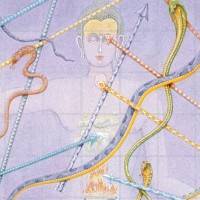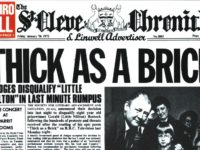In a pretty crowded field of rather talented 2000s-era prog-rock bands, Porcupine Tree stood out – principally because albums like The Incident established the group as a more melodically inclined, less wank-inclined progressive rock band. So much so, actually, that you worried if some progheads might even disclaim them.
For The Incident, released on September 15, 2009, the tactic of having a “side-long” suite of movements that make up a larger piece sounded very much like a classic move of the genre. Nevertheless, these discrete segments stood on their own. That’s no criticism where I’m concerned, though. Even well-developed rock suites can be difficult to sit through for more than a few listens.
Many of the tracks on Porcupine Tree’s The Incident were compact sized (only two of the 18 tracks run over seven minutes), meaning leader Steven Wilson was intent of moving on to the next idea just as soon as the present idea lost its freshness. If there were a few weaker numbers in the bunch, no need to hit the skip button, because they don’t have to be endured for long.
That said, there were several stronger selections, starting with “Time Flies” and also including “The Incident,” “I Drive The Hearse” and among the handful of “non-suite” songs, “Black Dahlia” and the funky and sinister “Bonnie The Cat.” At this point in their history, Porcupine Tree already had a highly identifiable, polished sound. The downside was, that made it harder to remember which Porcupine Tree album you were listening to. Still, that’s an acceptable trade-off when these days it’s really hard to be a distinctive rock band in the first place.
In all, The Incident was a lot like most any Porcupine Tree record: They fall just short of being that groundbreaking magnum opus that every notable prog-rock band has, but still offer a consistently solid, enjoyable effort that finishes a cut above what nearly all its contemporaries were offering in those days — even if it didn’t measure up to the idiom’s classics of yesteryear.
- Nick Millevoi – ‘Moon Pulses’ (2024) - April 23, 2024
- Cannonball Adderley – ‘Poppin’ in Paris: Live at L’Olympia 1972′ (2024) - April 20, 2024
- Christian Marien Quartett – ‘How Long Is Now’ (2024) - April 18, 2024




